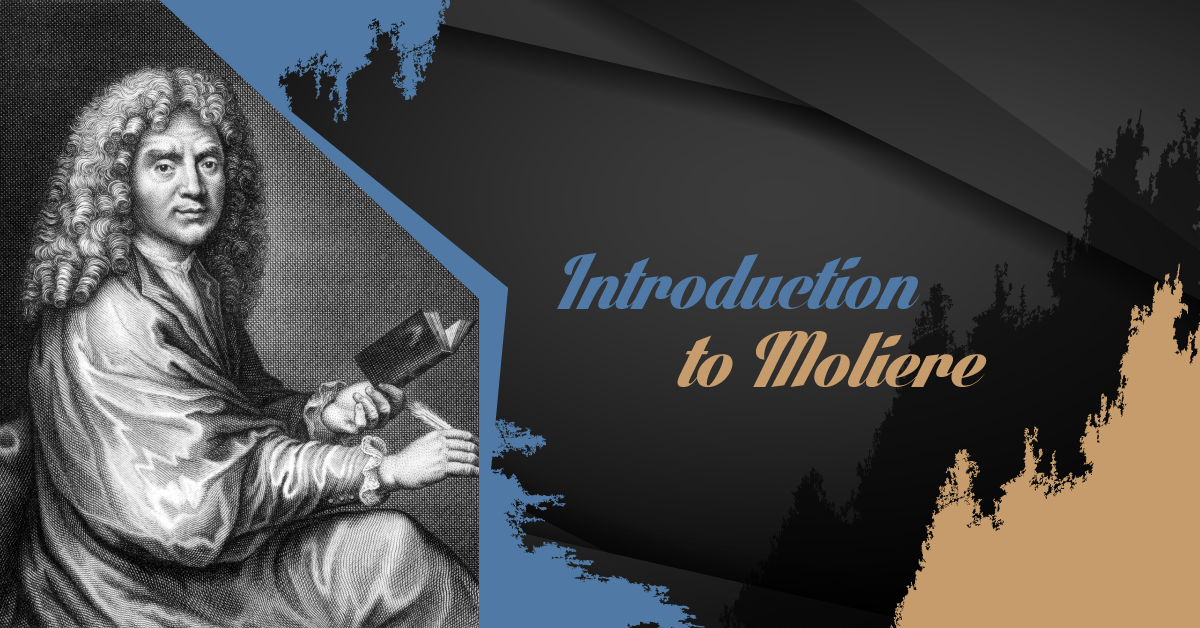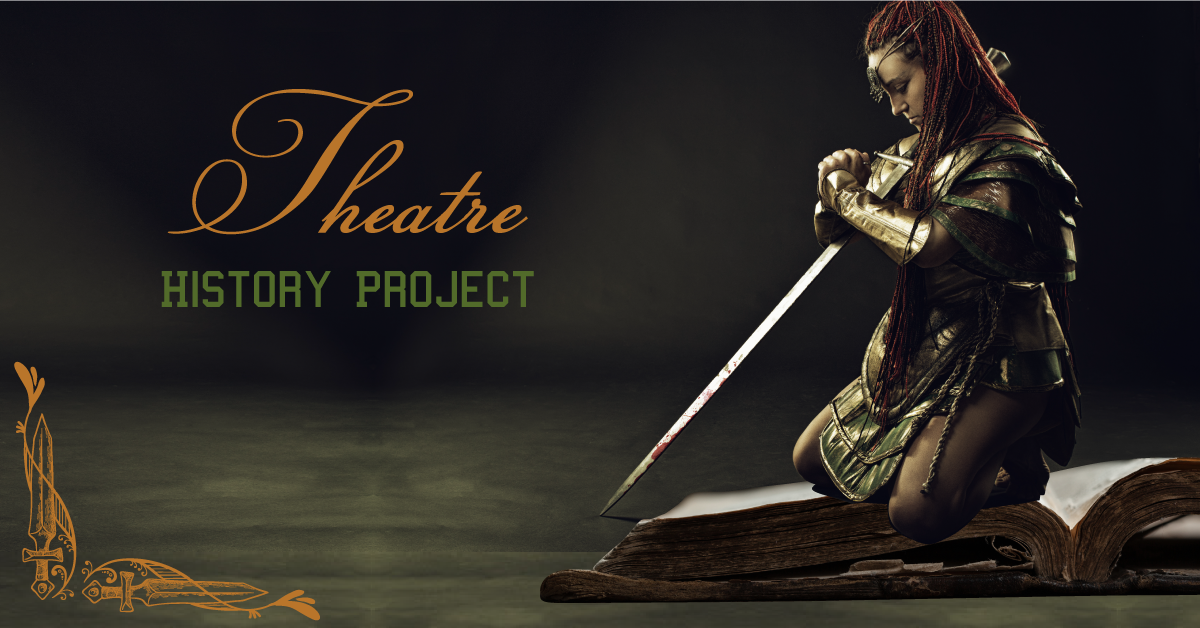Agatha Rex by Lindsay Price is a bold high school take on Antigone - packed with heart, conflict, and a powerhouse ensemble. One girl. One stand. One huge risk. *NEW COMPETITION VERSION AVAILABLE!*
Introduction to Molière
If you study theatre history, it is a given that Shakespeare will make an appearance. But it’s not a given that you will hit upon 17th Century France and the works of Molière.
What was theatre like in 17th Century France?
Theatre in 17th century France was defined by rules. Rules of society and structure, as well as rules of language, character behaviour, and story. This control placed on creativity seems odd when reviewing 17th century France as a whole, considering this time period was characterized by great change and transformation. There was war, as well as cultural and scientific advancements. There was also a growing gulf between the aristocracy and the lower classes, which helped fuel the French Revolution later in the 18th century.
At the beginning of the century, theatrical influences came from Italy. Italian commedia companies were popular and toured frequently – Molière was heavily influenced by Commedia dell’arte. Theatre architecture in France relied on Italian design. Plays were performed two to three times a week and, unlike in England, women were allowed on the stage.
The defining theatrical aesthetic was neoclassicism. Plays had to be submitted to the Academie Francaise to determine if they followed Neoclassical ideals.
What is Neoclassicism?
1. Inspired by Ancient Greece and Rome.
2. Adhered to Aristotle’s principles of unity of time and space: one setting, one story, and the action was limited to 24 hours.
3. Plays followed a five-act form.
4. Use of special effects and elaborate staging.
5. Decorum had to be followed: characters were real (e.g. no ghosts) and behaved according to their status. Stories were believable.
6. Morality, manners, and good taste were essential.
7. Plays did not mix comedy and drama.
8. Comedies must end happily. Tragedies must end in death.
9. Comedic characters must be from middle and lower classes. The hero in a tragedy must be of the noble class.
10. The purpose of a play was to entertain and to provide a moral.
Who is Molière?
Molière was born in Paris on January 15, 1622, and died on February 17, 1673. Molière is a stage name; his given name was Jean-Baptiste Poquelin and he was the eldest of six children. His father was an upholsterer who bought the title of Royal Upholsterer with the intention to pass on this royal appointment to Molière, who had different ideas. Molière’s mother, Mary Cresse, died when he was 12 years old.
At fourteen he went to the College de Claremont and later studied law at the University of Orleans. But his life took a turn in 1643 when he started a theatre company, Illustre Théâtre (Illustrious Theatre Company). He was both an actor and director. The company failed and Molière ended up in debtors’ prison. When he got out, the company spent thirteen years touring the provinces. It is then that Molière began writing plays. He learned his craft through production and performance.
On his return to Paris in 1658, Molière (who by now had taken the stage name so his family wouldn’t be embarrassed) and his company were able to perform for the king. This was a significant moment as theatre companies were not allowed to perform in Paris without permission. This would be the beginning of Molière’s theatre career in Paris and patronage by King Louis XIV. This patronage often saved Molière from harsh criticism of his life and work. It even extended to the King acting as godfather to his children.
Molière died of tuberculosis. Mythology says that he fell ill in the middle of a performance of The Imaginary Invalid and died soon after.
Major Plays
- The School for Husbands (1661)
- The School for Wives (1662)
- Tartuffe (1664)
- The Misanthrope (1666)
- The Miser (1668)
- The Bourgeois Gentleman (1670)
- The Learned Ladies (1672)
- The Imaginary Invalid (1673)
Molière’s Writing Style
Molière’s writing was very much influenced by commedia dell’arte but his style grew from that influence. He is often relegated to the role of comic, frivolous playwright, perhaps because his plays thrive in their physical action and their snappy dialogue. But this interpretation misses the level of biting social satire that he brought to his work.
He wrote about the flaws of humanity, the humanity that he saw all around him each day. He created characters filled with extremes: misers, hypocrites, hypochondriacs, misanthropes. These characters were so driven by their extremes that they crashed through their stories with blinders on, unable to do anything but exude their fatal flaw. There are always characters who oppose these extremes in Molière’s work, expressing the moderate voice. Because he mocked the upper classes, he had a lot of enemies. He also made a great enemy in the church. At one point, the Archbishop threatened that he would excommunicate anyone who saw, performed, or even read Tartuffe.
Molière wrote in a time of rules. Neoclassicism was not just encouraged, it was enforced. And although Molière is thought of as a Neoclassical playwright, he often went against the rules of the form. For example, the maid Dorine in Tartuffe speaks with wisdom far above her station, which was against the Neoclassical principle of decorum. Also, the deus ex machina ending of Tartuffe where a god (or in this play, the king) dives in and saves the play at the last minute was not in line with Neoclassical rules. The Misanthrope was neither a strict comedy nor a tragedy. In the Neoclassical world, characters who exhibited extreme behaviour were supposed to atone and return to the fold of moderate behaviour. Though the main character in Tartuffe is arrested for his religious hypocrisy at the end of the play, there is no indication that he has changed his ways.
Molière and Shakespeare
There are many parallels between Shakespeare and Molière. Both acted in their own plays, played a part in running a theatre company, and had royal patronage. They both loved to play with language.
It seems though that Molière found himself up against critics and criticism more frequently than Shakespeare. His plays often hit too close to home. Perhaps Shakespeare found it easier to balance writing what he wanted to say while placating church and state. If Shakespeare wanted to criticize the present, he did so through dramatizing the distant past. Molière wrote for the here and now of his world, which is why he caused such an uproar. The only thing that saved Molière in many cases was his favour with King Louis XIV.
The biggest thing that Shakespeare and Molière have in common today, is that we still read them, talk about them, and produce their work. It says a lot about the universality of Molière – I think that lies squarely with his characters. They do things and say things that we can relate to today, even though they were set in a different century.



